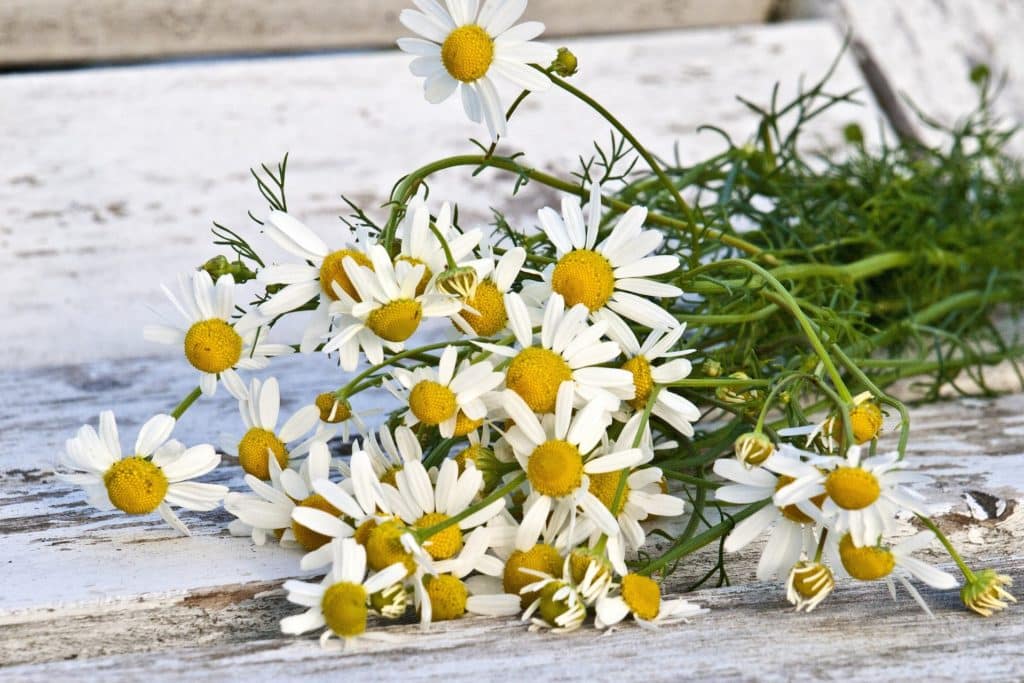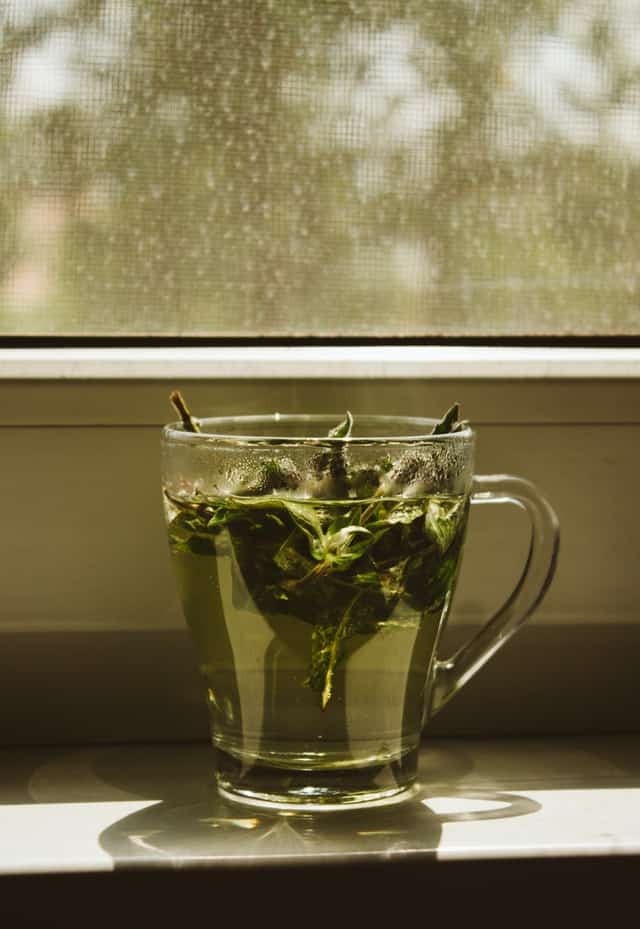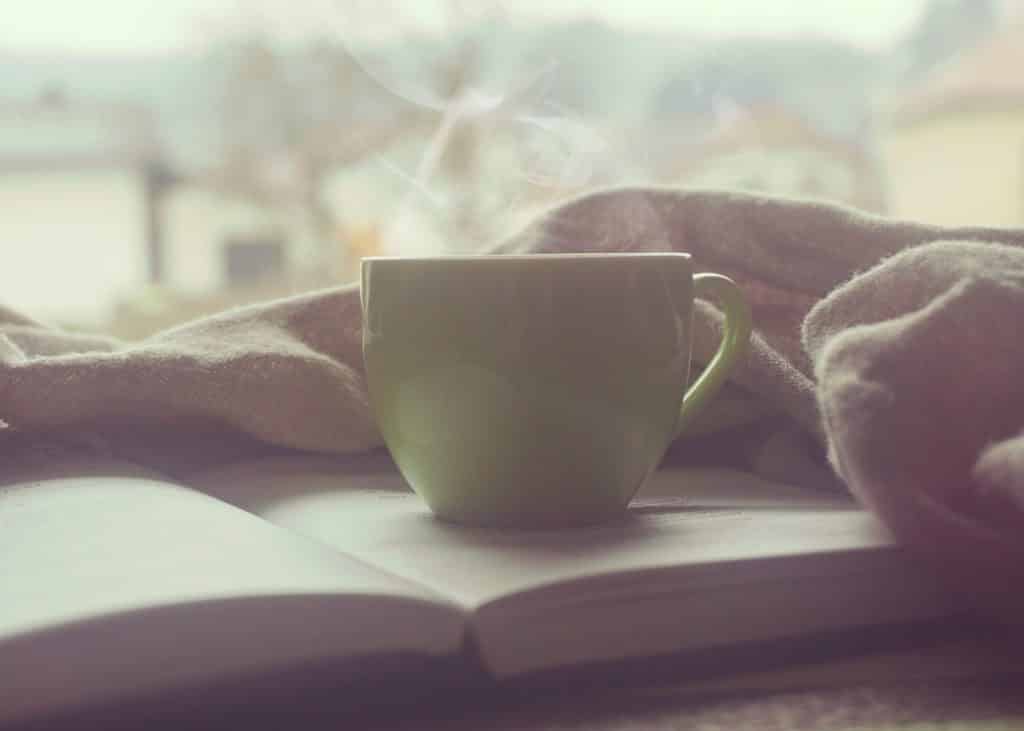Tea that helps with anxiety: 5 of the best teas for anxiety management
Quick Navigation
This post may contain affiliate links. Read the full disclosure here
What tea is best for anxiety?
A cup of tea has been used for centuries to calm the nerves, reduce stress, and alleviate anxiety. Whether you prefer black tea, green tea, or white tea, there are many different varieties of tea that can help relieve anxiety.
We explore the benefits of each variety and provide a list of our favorite teas to help you relax.
Chamomile Tea
The calming effects of chamomile tea can help you relax and fall asleep. It’s made by brewing dried chamomile flowers in hot water for 3 to 5 minutes.
A study in healthy volunteers showed that people who consumed chamomile tea over a week had reduced anxiety levels[1]. This study also showed that chamomile tea reduced the stress related neurotransmitter GABA after consumption.
Chamomile tea is also known to improve sleep quality [1], especially when taken regularly over several weeks.

Why is chamomile tea good for anxiety?
Chamomile tea has been used medicinally for thousands of years, and it has some scientific evidence that it may reduce anxiety. The most likely active ingredient in the tea is apigenin, which can block the effects of cortisol, a hormone released when you’re stressed.
Cortisol can trigger feelings of anxiety, so blocking its effects could help make you feel less anxious. Other ingredients in the tea may also have mild tranquilizing (relaxing) effects.
Research shows that chamomile tea may help reduce feelings of stress and anxiety. A recent study found that chamomile reduced how frequently participants experienced severe anxiety compared to a placebo [1]. Another study showed that chamomile reduced anxiety in people with generalized social phobia.
Interestingly, a study in mice showed that chamomile extract reduced GABA levels, which has been shown to reduce anxiety in humans. GABA is a neurotransmitter that helps regulate your mood and relax your muscles. So if you’re looking for a natural way to reduce stress and anxiety, consider drinking some chamomile tea!
Best Chamomile Tea for anxiety Management:
Celestial Seasonings Tension Tamer
This tea contains passionflower, chamomile, lavender, and lemon balm. These herbs are known to have anti-anxiety effects. It also has tangerine peel and orange peel for extra flavor.
Note: The taste of this tea is a bit different than others because it’s meant to be taken with honey and lemon. If you don’t like the taste of honey or lemon, you may want to avoid this tea.
It contains the following ingredients: Lemon balm (Melissa officinalis) leaf and flower, spearmint (Mentha spicata) leaf, peppermint (Mentha x Piperita) leaf, chamomile (Matricaria chamomilla) flower, and rose petals.

You can read our reviews on other chamomile tea brands here
Peppermint Tea
Peppermint has also been shown to help relieve headaches caused by tension and stress. You can drink peppermint tea to treat headaches, but it can also be used as a natural remedy for anxiety.
A couple of studies have shown that peppermint can be used to relieve symptoms of anxiety. The main effect seems to be from a relaxing effect of smelling the peppermint.
The best way to use peppermint tea for anxiety is to brew your own tea and add a few drops of peppermint oil to it.

If you do not have access to fresh peppermint leaves, then you can use dried leaves or even peppermint tea bags instead of fresh ones. You can also find pre-made blends of peppermint tea at most grocery stores or online (just make sure they contain actual menthol).
Lemon Balm tea
Lemon balm is a calming herb that has been used since ancient times. It’s also known as “Melissa” or “Melissa officinalis.” According to a study published in the National Institutes of Health , lemon balm supplements produced some improvements in anxiety symptoms [2].
The herb has been used traditionally to help with sleep and depression [3] (although there isn’t much scientific evidence for this). It also has some antioxidant properties.
The best way to enjoy the benefits of lemon balm is to drink it as tea! You can also add it to smoothies and other foods. Lemon balm has a nice, mild taste.
To make tea with lemon balm: Bring 1 cup of water to boil and pour over 1 tsp (3 g) of dried or fresh lemon balm leaves. Cover and let steep for 10 minutes. Strain and drink hot or cold. You can drink up to 3 cups per day. For maximum benefits, drink the tea daily for at least 2 weeks.
Passionflower Tea
Passionflower tea is said to be a powerful relaxant. It’s been used for hundreds of years in India, Europe, and the Americas.
The active ingredients in passionflower are alkaloids, which are a group of chemicals that affect the brain. Some of these alkaloids have sedative effects, which can be useful for relaxation and sleep. It contains antioxidants and may help with anxiety, insomnia, and stress.
One study showed that passionflower was effective at treating anxiety in humans [3], though the study was conducted on only 36 participants. The study’s authors stressed a larger study was needed.
For best results, drink 1–2 cups of passionflower tea every day. You can also drink it just before bed to help you sleep.
Kava Stress Relief
Kava tea is made from the ground roots of Piper Methysticum, a plant that grows in the South Pacific. It has a long history of use as a ceremonial drink among Polynesians.
In recent years, it’s become popular as a natural remedy for anxiety and stress [4]. It’s been used for centuries in the South Pacific Islands as a ceremonial drink for its relaxing and calming effects. While kava is traditionally made into a tea, it can also be purchased in capsule form or even brewed into beer.
The active ingredient in kava is called kavain, which is said to relax muscles, lower blood pressure, and reduce anxiety. It has a sedative-like effect on the brain, which is why it is often used to relax and calm down. It’s also believed to be effective against insomnia.
The amount of kavain in a cup of kava tea can vary greatly depending on how it’s made and where it comes from. Some types of kava tea have more kavain than others, but they also may contain other substances that can cause side effects. Some experts recommend buying only products that are made traditionally with water and ground-up roots from the Piper Methysticum plant. These products are said to be more potent and contain fewer unwanted ingredients.
A study published in The Journal of Clinical Psychopharmacology supports this claim. The study found that kava slightly reduced both anxiety and depression compared to placebo (a fake treatment)[4]. The only side effect was drowsiness, which was reported by about half of the patients who took kava. This was easily remedied by taking the pill with food or a snack. It should be noted that this study had some flaws — it was funded by a company that sells kava supplements and only lasted six weeks — but other studies have also found positive results for this herb.
Very little research on kava’s safety and overall health affects have been done. In the past, it was banned by Germany and the UK specifically for this reason. So make sure to do further research before using kava.
Valerian Root Tea
If you’re struggling with anxiety and you’re looking for a natural way to help yourself feel better, valerian root tea could be the answer. Valerian root tea is known to have sedative effects, which helps reduce stress and anxiety levels. It’s also been linked to helping improve sleep quality. It’s often combined with other herbs, such as lemon balm or chamomile, to enhance its calming effects.
It’s important to note that valerian root can interact with some medications, so if you’re taking any medications, check with your doctor before trying this herbal remedy.
How to make valerian root tea:
Add 1 teaspoon of dried valerian root to a cup of boiling water. Cover and let it steep for 10 minutes. Strain the tea into another cup and enjoy! This can be taken as needed throughout the day or at night before bedtime. You can also brew a batch of this tea and store it in the refrigerator so you can drink it throughout the day or night when you need it. It should last up to 5 days in the fridge.
Can drinking tea help with anxiety?
Tea can be a great way to help you relax. Tea is consumed in over 160 countries, and many people drink it every day for its soothing effects. It depends on which tea you drink, as common teas like green tea have caffeine, which can increase anxiety due to the caffeine. It’s best to stay away from teas with caffeine if you are trying to reduce anxiety. Other caffeine free teas like the ones mentioned above can be helpful for helping with anxiety.

Drinking tea shouldn’t replace proper medical treatment by a doctor however. Proper consultation with a health care professional should be your first step if your anxiety is seriously inhibiting your quality of life.

